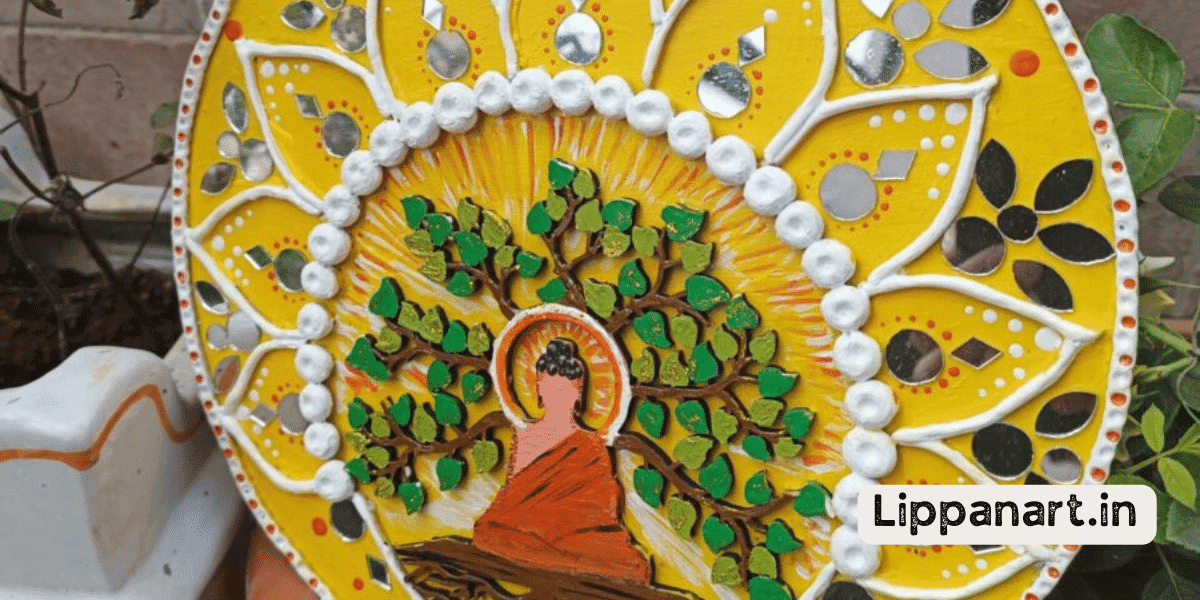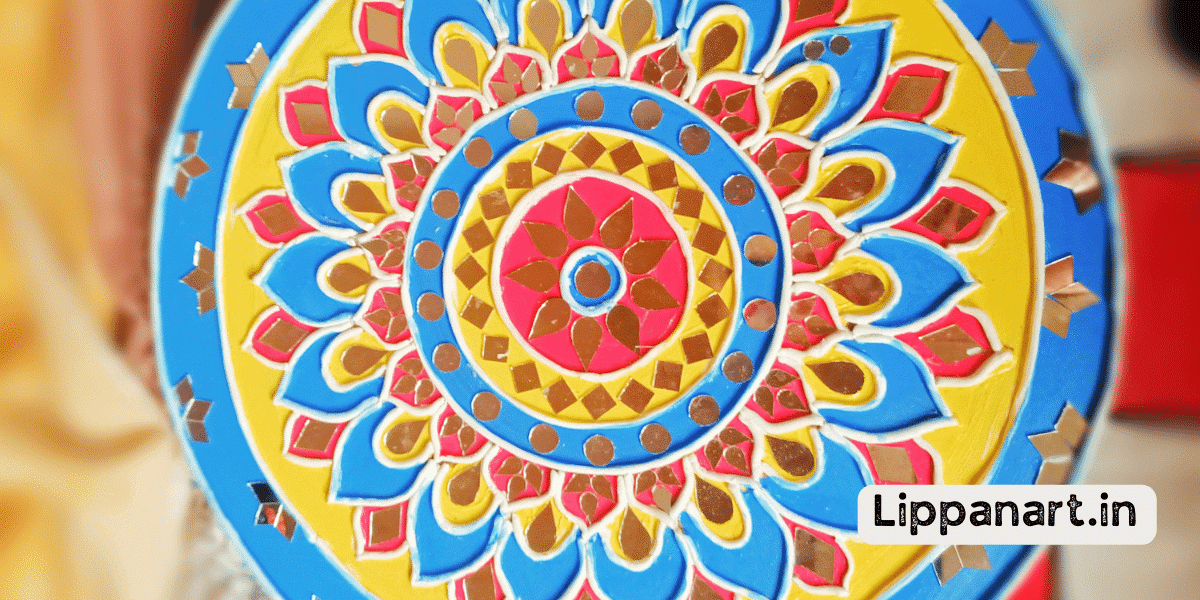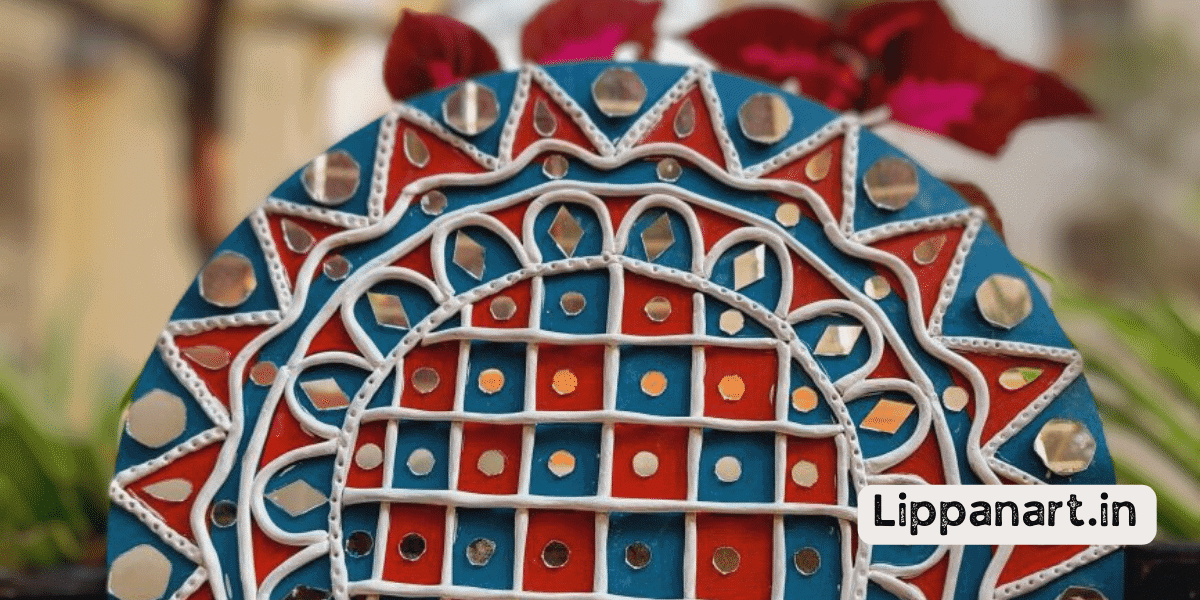You don’t have to wait for the garden to bloom to create stunning art. You can create unique and innovative art
pieces by harnessing the beauty and texture of dried flowers.
Let the petals of your imagination take flight, and explore the possibilities of using dried flowers to craft breathtaking art masterpieces.
From choosing the right flowers to creating unique designs and preserving artwork, this article will provide tips to help you explore a new world of creative expression.
Key Takeaways
- Choose and prepare moisture-free dried flowers with interesting shapes and sizes.
- Experiment with different techniques and materials, such as glueing, texture exploration, and unique vessels
- Preserve artwork by using acid-free materials, UV-filtering glass, and controlling temperature and humidity levels.
- Add colour and incorporate other materials through painting techniques, blending, layering, and attaching fabric or beads.
Choosing the Right-Dried Flowers
Choosing the right dried flowers for your art project is an important decision. Embellishing with dried flowers can add texture and colour to your creations, whether creating centrepieces, arranging bouquets, or constructing a piece of art. There are a few things to consider when finding dried flowers.
First, ensure the flowers are moisture-free and won’t unravel too much when handled. You’ll want to use bright and vibrant flowers, as they’ll help make your art piece stand out. If you’re looking for a more muted look, you can also use dried flowers that have been bleached.
Additionally, look for flowers with interesting shapes and sizes to add unique elements to your artwork. Finally, consider the fragrance of the flowers. If you’re using them in a piece of art, you may opt for flowers with minimal scent.
With the right dried flowers, you can create a stunning art piece that will be admired for years.
Preparing the Flowers for Use
Before you start creating, you’ll need to prepare your dried flowers for use. This is the foundation of your art and can be a creative and experimental process. Start by creating arrangements, mixing textures, infusing scent, blending colours, and cutting shapes. By taking the time to experiment with these elements, you’ll be able to add layers of complexity to your finished piece.
To ensure the best results, carefully remove the stems and leaves from the flowers. This will help you to create a more balanced composition. To add texture and depth to your art, vary the size of the flowers you use. If you’re incorporating scent, consider adding essential oils to the petals. If you plan to blend colours, take the time to experiment with different combinations. And for a unique touch, cut some of the flowers into different shapes.
Working With the Flowers
Experiment with different combinations of texture, scent, colour, and shape to create your unique piece of art with dried flowers.
Get creative with glueing techniques, texture exploration, and flower arrangements.
For an aromatic touch, incorporate scenting options such as lavender, rose, and eucalyptus.
Play with colours, patterns, and shadows to further enhance your masterpiece.
Get creative with framing options to showcase your art. Try different textures like paper, fabric, wood, and stone to bring your vision to life. An innovative approach to framing can make all the difference in the presentation of your artwork.
You can also use unique vessels like glass, ceramic, and metal for an unexpected twist.
Have fun with it, and let your imagination run wild.
With a few simple techniques and a creative eye, you can create a one-of-a-kind piece of art with dried flowers.
Creating Unique Designs
Showcase your creativity by crafting unique designs with dried flowers! Experiment with various painting techniques, framing ideas, textures, display strategies, and colour combinations to make the most of your dried flower art.
Here are some creative ways to get started with your project:
Painting Techniques:
- Try using a thin paintbrush to add intricate details to your dried flowers.
- Utilize a single colour of paint to give the flowers a consistent look.
Framing Ideas:
- Use a thin frame to give the flowers a modern look.
- Create a unique frame from scrap materials to give your design a rustic touch.
Texture Experimentation:
- Incorporate various materials like burlap, moss, and jute to add texture to your design.
- Try adding a layer of wax or other natural elements to give your design a unique finish.
Display Strategies:
- Add multiple dried flowers to the same frame to create an interesting pattern.
- Experiment with different lighting techniques to highlight the colours and textures of the flowers.
Colour Combinations:
- Play with complementary colours to give your project a vibrant look.
- Incorporate pastel colours to create a subtle and delicate design.
Unleash your creativity with dried flowers! Experiment with different techniques, colours, and textures to design a unique display.
- Editor’s Choice
- Best Seller
- Amazon Choice
Preserving Your Artwork
Try some of these easy techniques to preserve your artwork for years.
Protecting your dried flower artwork is essential for maintaining its vibrancy and beauty. Select acid-free matting and backing board when framing your piece to ensure your artwork doesn’t yellow or fade over time. Consider using UV-filtering glass to avoid damage from direct sunlight.
To display your artwork, hang it in a place with low humidity and away from moisture. When storing artwork, it’s important to pay attention to the temperature and humidity levels in the storage space. To prevent mould and mildew growth, maintain a stable temperature and low humidity. You can use a dehumidifier to help regulate humidity levels. Additionally, storing artwork in acid-free containers and boxes can help protect it from damage.
By following these tips, you can ensure that your dried flower art will be well-preserved and protected!
Adding Color With Paint and Dyes
Give your dried flower artwork an extra pop of colour by adding paint and dyes! Flourishing and detailed flower designs are achievable with the right painting techniques and dye application. When selecting flowers, consider how different textures and colours will blend. Experimenting with different pigments and mixing them can create a unique and eye-catching effect.
Combining paint and dyes can give your artwork a vibrant and distinctive look. You can explore a diverse range of colours and shades and unleash your creativity. Start with a base colour and gradually build up to create a multi-dimensional masterpiece. Keep in mind that paints and dyes can be mixed to create a variety of textured effects:
Painting Techniques
- Blending
- Stippling
- Glazing
- Dry-brushing
Dye Application
- Spraying
- Blotting
- Sponging
- Airbrushing
Wear protective gear when using paints and dyes to protect your skin and eyes. You can create a stunning painting or dye artwork that will last for years by combining the right colours, techniques, and flowers.
Incorporating Other Materials
Accentuate your artwork with fabric, beads, and feathers to create a unique piece. Let your imagination fly and experiment with combining textures, mixing mediums, and layering effects.
When using these materials, it’s important to ensure they’re secure and won’t fall off. The adhesive is a great way to keep them in place. You can even upcycle materials like old buttons, jewellery, or fabric scraps to give your artwork a special touch.
Don’t be afraid to get creative and try something new—you’ll be surprised by the results! By incorporating these materials in your artwork, you can create an eye-catching design that will impress you.
Using Dried Flowers in Other Creative Projects
Adding dried flowers to your creative projects can give them a unique look that will stand out! Gathering flowers is the first step to incorporating them into art. A few popular drying techniques include air drying, pressing, and borax.
- Air Drying: Using a mesh screen or drying rack, hang individual stems upside down in a warm, dry room.
- Pressing: Place flowers between two pieces of paper and press with a heavy book to flatten.
- Borax: Create a mixture of borax and cornstarch, lay the flowers in it, and allow them to dry.
Once your flowers are dried, you can get creative with framing ideas, adding texture, and arranging compositions. Frame your flowers in a shadow box to show off the delicate details. Layer dried petals and leaves to create a textured background for a painting. Or, arrange different types of flowers in a bouquet for a unique still life.
With so many possibilities, using dried flowers in your projects will surely add a touch of innovation!
Conclusion
Whether you’re an experienced artist or a beginner, using dried flowers in art is a great way to express your creativity!
From vibrant colours to intricate shapes, dried flowers allow you to create stunningly beautiful artwork that will last forever.
With a little imagination and a few simple tips, you can transform ordinary dried flowers into extraordinary works of art that will be admired for years.
So don’t be afraid to experiment and have fun with dried flowers – you’re guaranteed to create something extraordinary!













